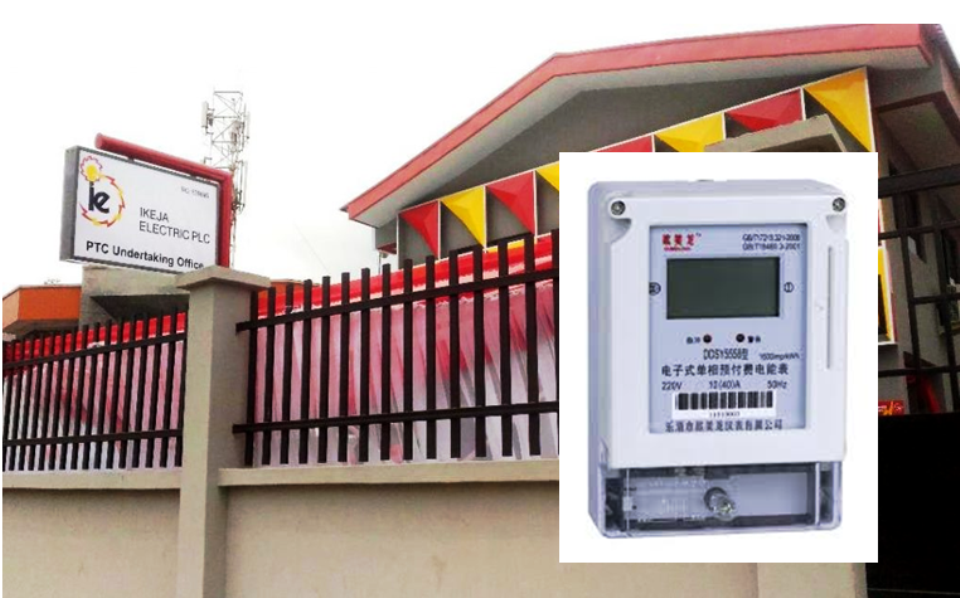The Association of Meter Manufacturers of Nigeria (AMMON) has voiced strong opposition to the Nigerian government’s practice of awarding lucrative meter supply contracts to Chinese firms, despite the existence of a robust and capable local manufacturing sector. This practice, AMMON argues, undermines President Bola Tinubu’s “Nigeria First Policy,” which prioritizes local industries and restricts the importation of goods that can be produced domestically. The association, representing 40 certified local meter manufacturers and assemblers, contends that prioritizing local manufacturers will not only boost the Nigerian economy but also create much-needed jobs and stimulate industrial growth. AMMON believes that adhering to the “Nigeria First Policy” will unlock the full potential of Nigerian industries, aligning with the president’s vision for economic development.
AMMON’s President, Durosola Omogbengun, while expressing appreciation for President Tinubu’s policy stance, pointed to a specific example highlighting the shortcomings of relying on foreign suppliers. He cited a $100 million contract awarded by the Transmission Company of Nigeria (TCN) to two Chinese companies for the supply of 1.25 million meters. Despite the substantial investment and the passage of considerable time, only a paltry 75,000 meters have been delivered, a mere fraction of the agreed-upon quantity. This delay, according to Omogbengun, not only impedes progress towards resolving the country’s electricity metering challenges but also underscores the unreliability of foreign suppliers. He further lamented that AMMON’s advice to involve local manufacturers in this project was disregarded by the previous administration.
Despite the evident failure of this initial procurement from Chinese firms, Omogbengun revealed that the TCN is proceeding with yet another World Bank-funded procurement of 1.55 million meters from foreign suppliers. This decision, AMMON argues, is a direct affront to local manufacturers and will further stifle the growth of the domestic metering industry. AMMON asserts that its members possess the capacity to meet Nigeria’s metering needs swiftly and efficiently, citing their successful delivery of 1.7 million meters within just 12 months in 2021. This achievement, they contend, far surpasses the performance of foreign suppliers and demonstrates the viability and efficacy of relying on local expertise.
The association emphasized its commitment to supporting the government’s efforts to improve electricity access and reiterated its members’ capacity to produce and install sufficient meters for all consumers. With a combined installed capacity of six million meters annually and a readily available stock of over 250,000 compliant meters, AMMON members are poised to meet current and future demands promptly. They maintain that given similar funding and opportunities, local manufacturers could significantly outperform foreign suppliers in terms of delivery speed and overall project success. The organization advocates for a level playing field, urging the government to favor local companies in procurement processes.
AMMON has called on the government to fully implement the “Nigeria First Policy” within the Distribution Sector Recovery Programme and the Presidential Metering Initiative. They propose the adoption of National Competitive Bidding as the standard procurement mechanism to ensure local content inclusion, prevent capital flight, stimulate job creation, and accelerate backward integration within the Nigerian economy. These measures, they believe, will not only boost the domestic metering industry but also contribute to broader economic development goals.
Furthermore, AMMON highlighted the significant contributions of the local metering industry to national development, emphasizing its potential to evolve from early-stage manufacturing to full-fledged manufacturing, positioning Nigeria as a regional export hub under the African Continental Free Trade Area (AfCFTA) agreement. With the right policy support and a commitment to prioritizing local manufacturers, the association believes that Nigeria can transform its metering sector into a regional powerhouse, generating jobs, fostering innovation, and contributing significantly to the nation’s economic growth. They expressed confidence in President Tinubu’s leadership and pledged their full cooperation in achieving the administration’s “Renewed Hope Agenda.” They emphasized the industry’s impressive capacity, employing 10,000 directly and 30,000 indirectly, and its proven track record of installing millions of meters under various government programs. Their message is clear: investing in local manufacturers is not only economically sound but also strategically vital for Nigeria’s future.


